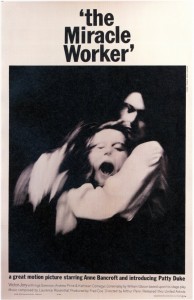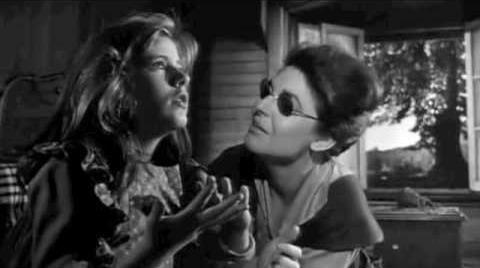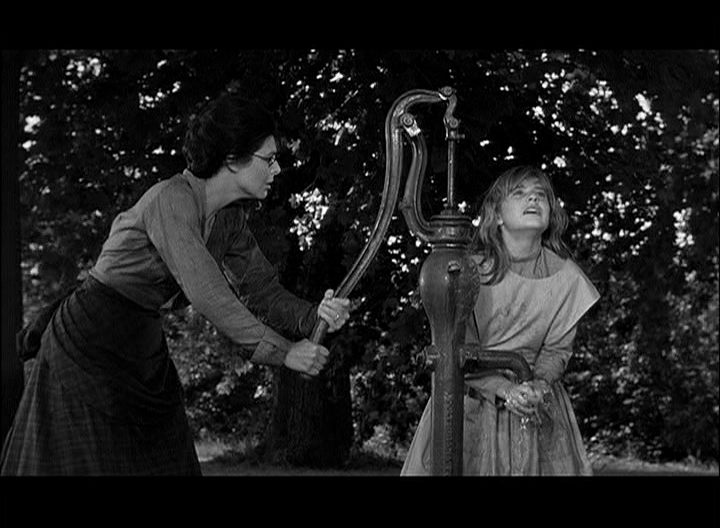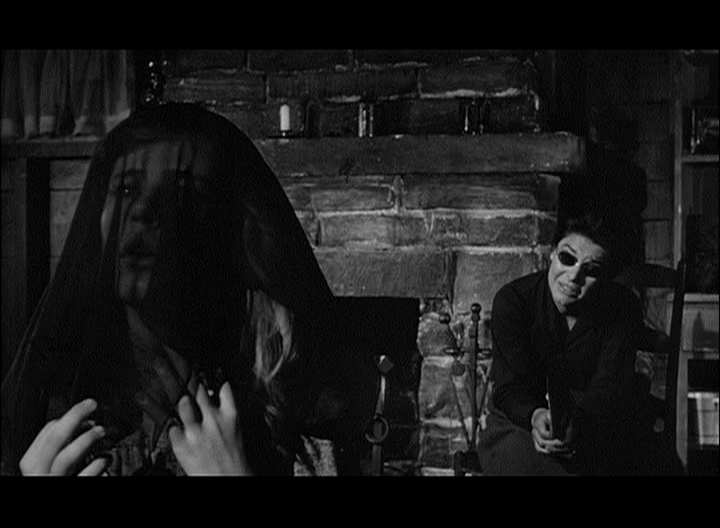Miracle Worker, The (1962)
“It has a name; the name stands for the thing.”
|
Synopsis: |
|
Genres, Themes, Actors, and Directors:
Response to Peary’s Review: Speaking of Oscars, Bancroft — reprising her role on Broadway — deservedly won one for her work here, and Peary acknowledges the wisdom of this choice in Alternate Oscars, where he similarly offers Bancroft the award. He confesses to liking “Bancroft’s slight smiles, [the] hints that [her] Annie knows she has a touch of madness”, which is “fine with her because, as she tells the Kellers, the madness is part of the strength she developed while growing up in an asylum”; indeed “only a slightly mad woman would speak to her employers as bluntly as she does” (and my, how refreshing this is to witness!). Just as exceptional as Bancroft’s performance, however, is that given by Patty Duke (also reprising her Broadway role), playing Helen Keller with “amazing intelligence and strength”. Duke and Bancroft are remarkably physical and impassioned in their interactions with one another; one feels exhausted simply watching them on-screen, let alone imagining the fortitude it took to execute their “long and complexly choreographed” “knock-about battles”. Peary accurately likens their work to the “skill of great silent comediennes doing wild, intricate slapstick” — though the mood in this case is usually anything but humorous. Redeeming Qualities and Moments:
Must See? Categories
Links: |





2 thoughts on “Miracle Worker, The (1962)”
A once-must, at least (mainly because it would be a little hard to take more than once; I’m only revisiting it now after many years).
This is an exhausting film – mainly the first half, in which Helen is an uncontrolled savage. Once Annie Sullivan enters the film and the slow journey to knowledge and understanding begins, it becomes easier to take…but it’s still rather a harrowing ordeal.
I have two favorite sequences – due to their power. The first is when Annie (Bancroft) is explaining to Helen’s parents – in harsh and explicit detail – what it was like for her and her brother to live together in a home for the insane. The second comes when Annie finally has Helen all to herself to work on; Helen, at that point, is mad at Annie, so Annie comes up with the brilliant idea of using the young black boy Percy as a go-between, to purposely increase Helen’s jealousy and frustration…so that she will choose to be the aggressor in her own growth.
I don’t think Penn’s direction is stagy – it’s just that the script rather obviously does come from a play (there’s little way around that; tho the film takes every opportunity to open the play up for film).
Overall, this is a fine film – very well acted and directed, and one that all ffs definitely should see.
My reaction was really much the same as yours – I hadn’t seen this one in a long time, was completely blown away and impressed, and now don’t intend to watch it again for quite a while.
But yes, all film fanatics should see it at least once, and consider a revisit if it’s been a long time.